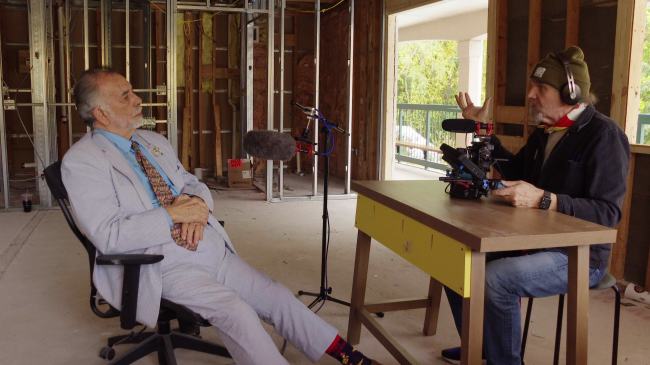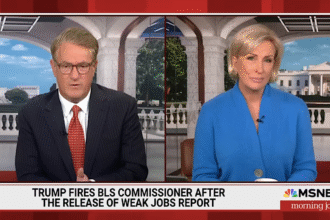Mike Figgis on Coppola’s Making of ‘Megalopolis’: A Cinema Dream Deferred
Francis Ford Coppola is a titan of American cinema, known for his visionary works that have left an indelible mark on the film industry. In recent discussions surrounding his ambitious project, "Megalopolis," director Mike Figgis, himself an influential filmmaker, has shed light on Coppola’s extraordinary yet tumultuous journey of bringing this epic vision to life. Figgis’s insights reveal not only the struggles and triumphs of creative endeavors but also illuminate the broader themes of ambition, passion, and the relentless pursuit of artistic expression in Hollywood.
The Vision of ‘Megalopolis’
"Megalopolis" has been long regarded as Coppola’s dream project. Conceptualized in the 1980s, it aims to explore the complexities of urban life, power dynamics, and the philosophical underpinnings of civilization. The story takes place in a futuristic New York City—an imagined metropolis grappling with social and ethical dilemmas. In his discussions, Figgis reflects on how Coppola’s vision encapsulated the essence of grand storytelling, blending elements of tragedy, morality, and the pursuit of greatness.
According to Figgis, one of the most compelling aspects of the project is Coppola’s commitment to deep thematic exploration. The idea was not merely to create another Hollywood spectacle but to craft a narrative that would resonate on a philosophical level. Figgis observes, “Coppola isn’t just interested in making a film; he wants to generate a dialogue about society, power, and the human condition.”
The Challenges of Scope and Scale
Transitioning a vision into reality often presents significant challenges, particularly for a project as ambitious as "Megalopolis." Figgis discusses the various hurdles Coppola faced over the years, from funding issues to the evolving landscape of Hollywood. One notable setback occurred during the early 2000s, when financial backing fell through, forcing Coppola to abandon production. Figgis notes, “It’s easy to underestimate the scale of what he’s trying to accomplish. The complexity of ‘Megalopolis’ could overwhelm even the most seasoned filmmakers.”
An ambitious undertaking like this invariably attracts skepticism, and Figgis highlights how the project has been interpreted by critics and industry insiders. Many viewed Coppola’s grand vision as a liability in a market more focused on profitability than artistic exploration. Figgis draws parallels to his own experiences, stating, “All filmmakers wrestle with the same demons when trying to realize their visions.”
The Art of Perseverance
Despite the significant setbacks, Figgis underscores Coppola’s resilience. The director’s determination to explore and expand his vision reflects a deep-rooted passion for storytelling that is often elusive in today’s fast-paced film industry. "Megalopolis" signifies not only a professional undertaking for Coppola but a personal odyssey as well—a story about faith in one’s artistic voice amidst adversity.
Coppola’s dedication to the film speaks volumes about the nature of creativity. Figgis captures this sentiment when he states, “In an era where many directors might throw in the towel after a few roadblocks, Coppola’s unwavering commitment is a reminder of what it means to be truly passionate about your art.” This commitment is also visible in Coppola’s approach to self-financing projects, a practice that empowers him to retain creative control and fidelity to his vision.
Inspirations and Influences
Figgis also delves into the inspirational facets of Coppola’s work. He recounts conversations with Coppola, where the legendary director spoke of the influences that spurred him to dream big with "Megalopolis." Among these influences are literary giants like F. Scott Fitzgerald and political philosophers such as Machiavelli, whose themes of power, morality, and human complication permeate the narrative.
Figgis asserts that understanding these layers helps demystify why "Megalopolis" has transcended the typical box office constraints. “Coppola is not merely telling a story; he is articulating a framework for understanding our society,” Figgis explains. This ambition aims to invite the audience into a broader contemplation of the world, beyond entertainment alone.
Exploring the Cast and Crew Dynamics
Every monumental film project requires a robust team, and "Megalopolis" is no exception. Figgis remarks on Coppola’s knack for assembling a talented ensemble cast and crew, emphasizing that collaboration is pivotal to the creative process. The director’s ability to attract high-caliber performers speaks to his reputation and understanding of character development.
“What intrigues me about Coppola,” Figgis says, “is his unwavering belief in the power of collaboration. He strives to empower the people around him.” This philosophy creates an environment where actors and crew can feel inspired to contribute meaningfully to the story, elevating the work from mere film to profound cinematic experience.
The Future of ‘Megalopolis’
As discussions around “Megalopolis” continue to evolve, Figgis is optimistic about the project’s future. With renewed interest following Coppola’s successes with documentaries and smaller films, the possibility of resurrecting "Megalopolis" is looking more promising. Figgis observes, “Coppola has a way of reinventing his vision; he’s always adapting to the times.”
The film, inevitable and timeless in its themes, continues to resonate with audiences craving richer narratives. Figgis articulates, “The passage of time only seems to add layers to the story; it’s a reflection of our changing society and the timeless struggles we face.”
Conclusion
In Mike Figgis’s reflections on Coppola’s "Megalopolis," we glimpse the multifaceted challenges and triumphs inherent in ambitious filmmaking. Coppola’s relentless pursuit of his vision serves as an inspiration to aspiring filmmakers and a testament to the power of storytelling. As the fate of "Megalopolis" hangs in the balance, one thing is certain: regardless of its outcome, the journey of this epic project will remain a vital chapter in the narrative of cinema. We are left eager for the day when Coppola’s dream might finally materialize on screen, allowing a new generation to engage with the thought-provoking questions posed in his vision of the future.





